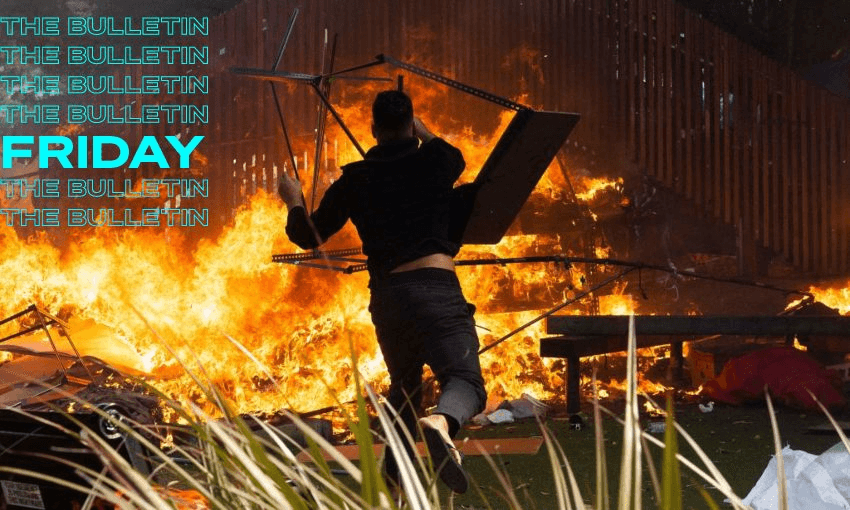The opposition has called for an inquiry, but there’s been no move from Labour to review the three week occupation of parliament’s grounds, Justin Giovannetti writes in The Bulletin.
Physical damage to parliament is still being repaired, but what of the deeper damage to democracy.
In the final days of the three week occupation of parliament, prime minister Jacinda Ardern promised that a review of some kind would be held to look into the response. The occupation saw over 100 arrests, 40 police officers injured and mass disruption to the capital. Three weeks after the protest ended in a fiery riot, work is still underway to clean up parliament’s grounds. However, momentum for an inquiry has now stalled and it risks becoming a partisan issue.
Where are the inquiries into the occupation?
Labour members controlling parliament’s justice select committee blocked a request last week by National MPs to hold a hearing into the occupation and riot. RNZ’s Jane Patterson explains the current state of inquiry into the protest. The government said it was waiting on the Independent Police Conduct Authority to confirm whether it’ll look into the protest and what its terms of reference are. The opposition has voiced concerns about leaving an inquiry to the IPCA, which has more experience looking at individual police misconduct than broad situations like the occupation. The police minister confirmed that no discussion has been held at cabinet about a broader review. The IPCA revealed yesterday that it will conduct a year-long investigation tightly focused on police actions, The Dominion Post reports.
The opposition wants parliament to have a role in a wider review.
Speaking with Stuff, National leader Christopher Luxon said a larger inquiry of the occupation is needed. He worries that an IPCA review would look too narrowly at the protest and not at larger issues that need to be examined. It’s about much more than the interactions between police and protesters. There’s the role of the speaker in terms of blasting music and turning on parliament’s sprinklers; misinformation and the lack of warning from the intelligence agencies, as well as the wider impact on Wellingtonians. The prime minister has said she expects parliament will eventually look at its own operations and whether the grounds should remain open to the public in the future. There’s been no indication on when that might happen.
Why did Labour block an inquiry by parliament?
Labour’s justice committee chair, Ginny Andersen, last week obstructed an opposition request to call the police commissioner to front over the occupation. Contacted by Newsroom to explain the decision, Andersen said the prime minister had spoken about the situation and she had nothing to add. Committee chairs are independent from the prime minister’s office and can hold significant power in parliament. As Newsroom’s Jo Moir writes, it’s noteworthy that Andersen didn’t think she had to explain herself to the public. Labour has a majority on all of parliament’s select committees. In the aftermath of the occupation, there are a number of significant ways parliament could respond. The Conversation makes the case for why a new law is required to protect the heart of the country’s democracy.


